IATRIKI PROLIPSI
The following departments operate in our diagnostic center:
- MICROBIOLOGICAL
- HORMONOLOGICAL – IMMUNOLOGICAL
- HEMATOLOGY – BIOCHEMISTRY
- MOLECULAR ANALYSIS

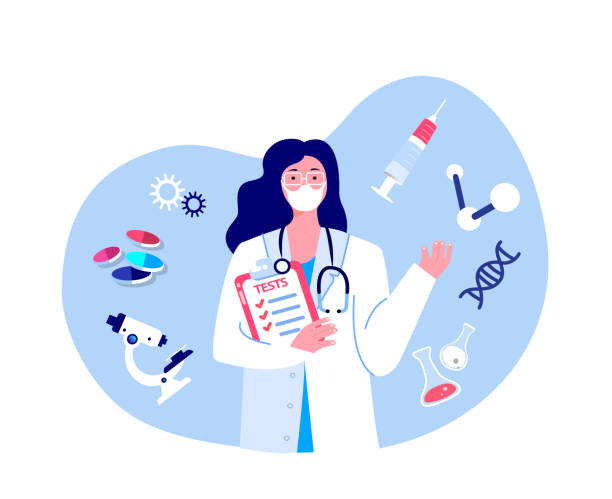
IATRIKI PROLIPSI
The laboratory IATRIKI PROLIPSI has been operating since 2015 offering the highest quality in laboratory analyzes and is perfectly adapted to the needs of modern man. Our goal is to provide high quality health services with respect to each examinee and to provide reliable results.
From the beginning, our main concern has been the offer of wider scientific services, always oriented towards quality, reliability and human contact.
Departments
List of Examinations
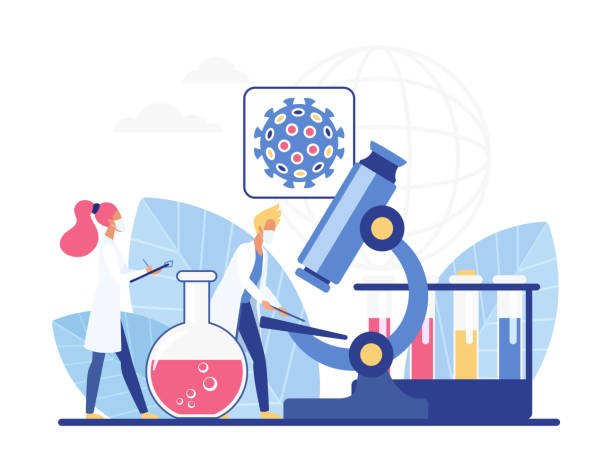
Basic Preventive Control
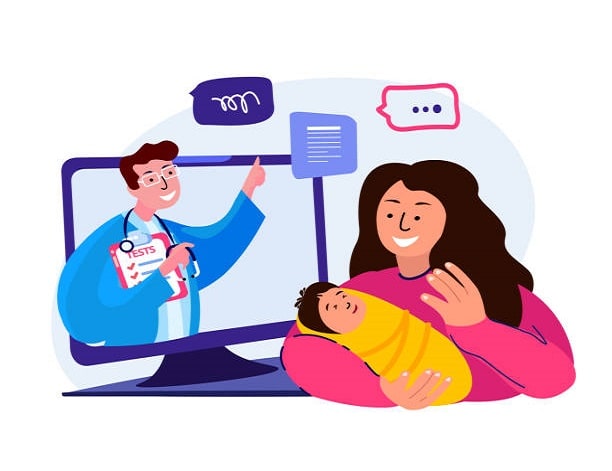
Complete Child Screening
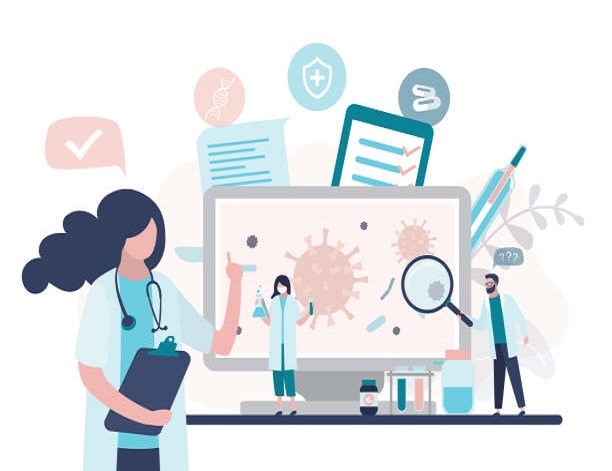
Complete Biochemical Check
Reliability oriented laboratory tests
In our laboratory we have all the necessary infrastructure, human resources and necessary equipment for a sure and safe diagnosis.
Hematology Testing
Biochemical Testing
Cultures, Virus Detection & Antibiograms
Hormone Testing
Cancer Markers & Oncogenes
Drug & Substance Abuse Levels
Molecular Examinations
Testing of Food Allergies - Intolerance
Blood collection at home
IATRIKI PROLIPSI knows the needs of vulnerable groups and provides you with the service:
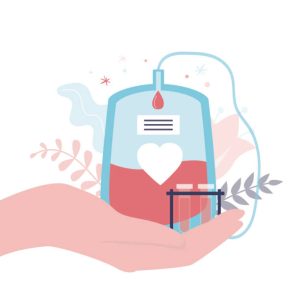
“Blood collection at home”.
The appointment is booked by phone

- 2286 033374, Mesaria
- 2286 085440, Emporio
- 6972592909
- Mesaria 847 00, Santorini
- Epar.Od. Firon-Ormou Perissa, Emporio 847 03
Covid Test
At IATRIKI PROLIPSI we conduct with exceptional reliability molecular screening tests for SARS-CoV-2 detection, but also in combination with a check for influenza viruses. We also perform a Rapid Antigen test as well as an antibody test.
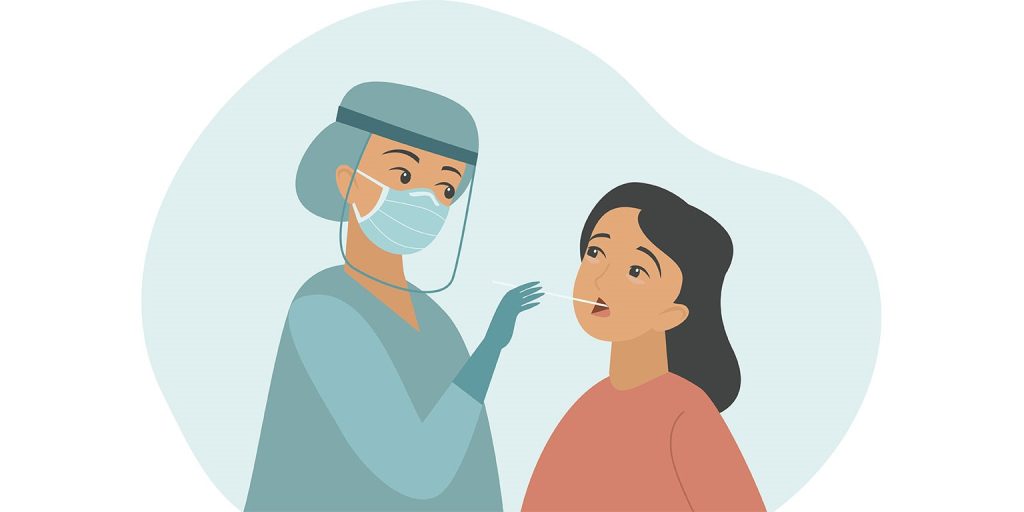
Check up - Offers
Check Up
General blood, Sugar, Urea, Creatinine, Uric acid, Cholesterol, Triglycerides, HDL, LDL, Urine General, SGPT, γ- GT, TKE, Total bilirubin, Total proteins, Albumin, CPK, D-dimer, LDH, K, Na , Ferritin, Troponin, TSH
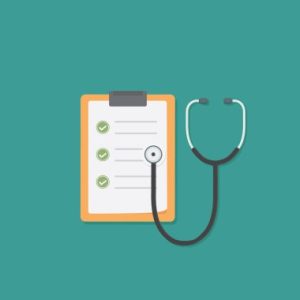
- With 1 sampling, antigen detection of the SARS-CoV-2 virus and influenza viruses type A and B is carried out.
- Results are available within 30 minutes and are also sent electronically.
- The service is also provided at home
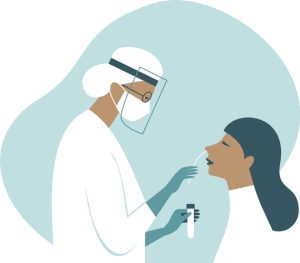
- IgG antibodies indicate whether someone has had the virus in the past and is immune either from vaccination or disease.
- The test is done by drawing blood and the results are also sent electronically.
- The service is also provided at home
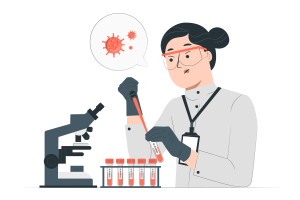
Check up of men 40-65 years old
The cost of analyzes of the basic male check-up with PSA and free-PSA is 70 euros and is further determined by the additional analyzes that may be requested
The cost for all analyzes of the package is 150 euros
The results are given the next day.
For men in this age we rely on the General check up of men aged 18-40. We pay additional attention to the prevention of prostate cancer, which is one of the leading causes of death for middle-aged and older men. Of particular importance are the indicators of intravascular inflammation, which reveal risks of cardiovascular events. Optionally, a choice is made between the most important neoplasia indicators, with an emphasis on those of the gastrointestinal system, but also a control of the male’s sex hormones, related to the health of his sexual ability.
The additional tests that are recommended in addition to the Check up for men 18-40, are:
PSA (prostate antigen) and optionally free-PSA (free prostate antigen) are probably the most important test for the man over 40 years of age, for the early detection of prostate cancer. The value of the test makes it for many doctors the most necessary among the tests of the annual preventive check up. It is evaluated by comparing the results obtained each year.
In addition to the use of PSA as an indicator of neoplasia, it is also used as a tool to detect prostate infections (prostatitis) which are particularly common among men. Their early detection is essential for their timely treatment and to preserve the health of the gland.
The value of CEA (carcinoembryonic antigen) is evident from the fact that it is a general marker of neoplasia and is associated with the most frequent neoplastic diseases of almost the entire body (liver, thyroid, larynx, esophagus, rectum, testes, bladder, pancreas, colon , lung, stomach).
The aFP analysis (a – fetal protein) is a specific indicator of inflammation – neoplasia of the liver and also of the testicles.
CA 19-9 (cancer antigen 19-9) is a specific indicator of inflammation – neoplasia of the pancreas, colon, liver, stomach.
Testo (testosterone), free-Testo (free testosterone) are about the measurement of the most important androgen hormone in men. It is mainly used in the detection of the hormone-dependent cause of the limited sexual mood and ability, as well as the general well-being of the man.
In preparation for the morning blood draw and examination, the following are recommended:
- to have a meal the night before.
- the last meal should be taken up to 11-12 hours before blood sampling.
- the evening meal should have as little animal fat as possible (if it contains cheeses, fatty dairy products and meats).
- in the morning no meal should be taken, only coffee and a piece of toast, with free drinking of water.
For taking the urine:
- collected first thing in the morning.
- local washing with plenty of water, without soap.
- discard the first urine of urination and collect a small amount of the middle urine in a special urine-collector.
Women from 65 years old
Final price 115 euros
The results are given the next day
For older women, we use the general check up, and we also pay special attention to the correct ratio of trace elements and vitamins. Lack of food, limited absorption of trace elements, possible dehydration, but also possibly burdened kidney function as well as polypharmacy are the main causes for these disorders. Thyroid function, which is often hypofunctioning, is additionally routinely checked, and neoplasia markers for the gastrointestinal and lower genital tract are optionally checked.
So beyond the analyzes of the general Check Up ( General blood count with measurement of white blood cells and platelets, TKE, Sugar, Urea, Creatinine, Uric acid, HDL cholesterol, LDL, Triglycerides, Total lipids, Atheromatous index, CRP quantitative high sensitivity, γ-GT , transaminases, general urine), the following are recommended:
- Calcium (Ca,) Phosphorus (P), Magnesium (Mg) are the main trace elements of man. At older ages, food malabsorption problems, changing nutritional conditions, but also medication can significantly modify their levels, degrading the health of older women.
- Vitamin B12 (Vit.B12) and folic acid (Folate acid), often at older ages are at lower levels than desired mainly due to absorption problems, causing anemia, cachexia and also neurological problems.
- Vitamin D3 is necessary for the absorption of calcium in the bones, while it has an anti-cancer effect. Possible lack of it can worsen or even cause osteoporosis
- Iron (Fe) and the main store of iron, ferritin (Ferr), are selected in combination to investigate possible iron deficiency. Signs of iron deficiency are brittle hair and nails, feeling tired and fainting tendencies.
- Sodium (Na+), Potassium (K+) – electrolytes are the most important salts in the body that are regulated through the kidneys, whose function deteriorates significantly at older ages. Disruption of their levels can cause confusion, drowsiness and affect mental functions, even dangerously deregulate heart function. Tests are absolutely necessary in cases of chronic medication and especially in cases of taking diuretic and cardiac drugs.
- Total proteins (TP), Albumins (Alb), are indicators of proper nutrition (quantitative and qualitative), but also indicators of the correct functioning of the metabolism and the health of the immune system.
- TSH (thyroid-stimulating hormone) gives a first picture of the functional performance of the thyroid, which often in older women is underactive, giving signs of fatigue, moodiness, sleepiness.
Optionals can be additionally:
Neoplasia markers CEA (carcinoembryonic antigen), aFP (α-fetal globulin), CA 19-9 (cancer antigen 19-9), CA 125 (cancer antigen 125) are checked for inflammation and neoplasia in the most important organs of the body, including the gastrointestinal system – lower gynecological.
In preparation for the morning blood draw and examination, the following are recommended:
- to have a meal the night before.
- the last meal should be taken up to 11-12 hours before blood sampling.
- the evening meal should have as little animal fat as possible (if it contains cheeses, fatty dairy products and meats).
- in the morning no meal should be taken, only coffee and a piece of toast, with free drinking of water.
For taking the urine:
- collected first thing in the morning.
- local washing with plenty of water, without soap.
- discard the first urine of urination and collect a small amount of the middle urine in a special urine collector.
The analysis package can be modified according to the examinee’s needs.
Basic Check up for children
Final price 55 euros
The results are given the same day.
For children aged 3-12 years, we use the analysis package of the basic Check up, with which the necessary check of hemodynamics, kidneys and liver, the measurement of sugar, cholesterol – lipids, and urinary, is carried out, with the exams:
ANALYSIS | CONSIDERS: |
General blood / Blood chart | Hematocrit – red blood cells, white blood cells, platelets. |
TKE sedimentation rate | |
C-reactive protein High sensitivity CRP-hs | Short-term central and local inflammations, |
Fasting / two-day sugar | Diabetes mellitus / predisposition to diabetes |
Urea | Renal function |
Creatinine | |
Uric Acid | Arthritis, eating disorders |
Cholesterol | The amount and proportion of blood lipids as |
HDL | |
LDL | |
Triglycerides | |
Atherogenic index | |
γ-GT | Liver function, possible liver irritation from chemical agents or infections |
ALT & AST transaminases | |
General urine | Kidney and bladder pathology and infections |
Iron- Ferritin | Adequacy of dietary iron |
However, the particularities of childhood (allergies, tonsillitis, possible nutritional deficiency, etc.) as well as the need for early detection of additional risk factors from possible familial dyslipidemia, require additional analyses.
The most important additional analyzes proposed are:
Immunoglobulins E (IgE)
They are the main indicator of allergic reactions of all types.
Allergies affect about 30% of children. The unnecessary activation of the immune system by allergic reactions, on the one hand, creates an environment for the perpetuation of allergies even at older ages, on the other, it exhausts the body as a whole and creates more general sensitivities.
The early detection of allergic reactions in children is extremely important as it provides information to avoid factors that cumulatively enhance the allergic reactivity of the individual. With the right information and the appropriate preventive measures, we can avoid even the most dangerous allergic shock, which usually occurs during the holiday season and in places with limited possibilities of immediate medical treatment (e.g. from an insect bite).
In the event that elevated levels of IgE are found, then specialized allergy indicators (rast tests) can be analyzed further, for the exact identification of allergens (dusts – pollens – foods) with the suggestion of a pediatrician – allergist.
Antistreptolysin (ASO)
It is the test for detecting a possible infection of the tonsils by streptococcus. The detection of streptococcal infection is used as a criterion for evaluating future fever. The infection is very common among children, and in an exacerbation phase requires immediate treatment to avoid possible serious side effects (e.g. heart attack).
Iron (Fe) and Ferritin (Ferr).
The tests are performed in combination to assess the adequacy of dietary iron in children.
The increased consumption of dairy products common in childhood often creates problems in the absorption of iron (cow’s milk is poor in iron, but the intake of calcium itself interferes with the absorption of iron).
Possible lack of iron, in addition to anemia with symptoms of fatigue, can bring a general change in behavior in children, even learning difficulties.
In preparation for the morning blood draw and examination, the following are recommended:
- to have a meal the night before.
- the last meal should be taken up to 11-12 hours before blood sampling.
- the evening meal should have as little animal fat as possible (if it contains cheeses, fatty dairy products and meats).
- in the morning no meal should be taken, except for tea with a piece of toast, with free drinking of water.
For taking the urine:
- collected first thing in the morning.
- local washing with plenty of water, without soap.
- discard the first urine of urination and collect a small amount of the middle urine in a special urine collector.
IMPORTANT INFORMATION
The personalization of the check up takes into account multiple parameters of the child’s personal and family history. Depending on the case, the selection of tests may be limited to those absolutely necessary for the basic check up, but may also contain analyzes that are not mentioned on this page. For this reason consult your pediatrician or your family doctor
Teenagers 13-18 years old
The cost for the standard adolescent check up which includes the basic check up + Ferr, TSH) is 60 euros.
The results are given the same day.
For teenagers, we use the analysis package of the basic Check up, with which the necessary check of the hemodynamics, kidneys and liver, the measurement of sugar and cholesterol-lipids as well as the urinary is carried out, with the tests:
ANALYSIS | CONSIDERS: |
General blood / Blood chart | Hematocrit – red blood cells, white blood cells, platelets. |
TKE sedimentation rate | |
C-reactive protein High sensitivity CRP-hs | Short-term central and local inflammations, |
Fasting / two-day sugar | Diabetes mellitus / predisposition to diabetes |
Urea | Renal function |
Creatinine | |
Uric Acid | Arthritis, eating disorders |
Cholesterol | The amount and proportion of blood lipids as |
HDL | |
LDL | |
Triglycerides | |
Atherogenic index | |
γ-GT | Liver function, possible liver irritation from chemical agents or infections |
ALT & AST transaminases | |
General urine | Kidney and bladder pathology and infections |
The peculiarities of adolescence (sports activities, possible nutritional deficiency, sexual behavior, etc.) as well as the need for early detection of risk factors from possible familial dyslipidemia, create the need to check additional analyses.
The most important analyzes are:
Creatine Phosphokinase (CPK)
It is an enzyme found inside muscle cells, and is used in teenagers as an indicator of muscle strain from sports, in order to avoid possible overtraining and possible injuries to muscles and ligaments. The test can provide additional information about other pathological diseases in cases of muscle pain and weakness without an obvious reason.
Iron (Fe) and Ferritin (Ferr).
The tests are performed in combination to assess the adequacy of dietary iron in children.
The increased consumption of dairy products common in childhood often creates problems in the absorption of iron (cow’s milk is poor in iron, but the intake of calcium itself interferes with the absorption of iron).
Possible lack of iron, in addition to anemia with symptoms of fatigue, can bring a general change in behavior in children, even learning difficulties.
Thyroid stimulating hormone (TSH).
The measurement of the hormone is the main analysis of the thyroid, which assesses the regulation of the gland by the respective levels of the hormones T3 and T4.
The correct regulation of the thyroid is necessary for the balanced physical development and behavior of adolescents.
The analysis is particularly recommended for children with parents who have a history of thyroid diseases, as well as for children who show a lack of growth, weight – concentration – sleep disorders or have expressions of anxiety.
In preparation for the morning blood draw and examination, the following are recommended:
- to have a meal the night before.
- the last meal should be taken up to 11-12 hours before blood sampling.
- the evening meal should have as little animal fat as possible (if it contains cheeses, fatty dairy products and meats).
- in the morning no meal should be taken, only coffee and a piece of toast, with free drinking of water.
For taking the urine:
- collected first thing in the morning.
- local washing with plenty of water, without soap.
- discard the first urine of urination and collect a small amount of the middle urine in a special urine collector.
IMPORTANT INFORMATION
The personalization of the check up takes into account multiple parameters of the child’s personal and family history. Depending on the case, the choice of tests can be limited to those absolutely necessary for the basic check up, but it can also contain analyzes that are not mentioned here. For this reason consult your pediatrician, or your family doctor or ask us by phone to give you more information and recommendations.
Thyroid disorders
The thyroid gland is a key organ in the regulation of metabolism. The hormones it produces (T3 and T4) are absorbed by all cells of the body and regulate their metabolic rate. The hyperfunction of the gland, i.e. the high production of T3 and T4 is associated with nervousness, poor sleep, hypertension, tachycardia, excessive sweating, hand tremors, confusion, unexplained weight loss, etc.
Its hypofunction in the opposite case is associated with bradycardia, feeling tired, sleepy, confusion, nervousness, weight gain, etc.
The recommended tests are the measurement of:
T3 (triiodothyronine), fT3 (free triiodothyronine), T4 (thyroxine), fT4 (free thyroxine): the hormones produced by the thyroid and their biologically active fractions.
TSH (thyroid-stimulating hormone): the brain hormone that regulates thyroid function, from the measurement of which conclusions are drawn about its hypo/hyperfunction.
Anti-TPO (anti-thyroid antibodies), anti-TG (anti-thyroglobulin antibodies: the main anti-thyroid antibodies. Tests can predict incipient hypofunction of the gland and are used to diagnose Hashimoto’s thyroiditis and Graves’ disease.
Thyroglobulin (TG), calcitonin (CT), CEA (carcinoembryonic antigen): markers with which neoplasms and carcinomas in the gland can be detected. Analyzes are recommended in cases where there are indications of neoplastic disease.
No specific preparation or diet is required for thyroid tests, as food does not affect the function of the gland or the analyzes themselves. Blood sampling can be done at any time of the day.
Caution is only needed for people who are on thyroid medication, as they should not have taken their medication before the blood draw, unless their doctor tells them otherwise.
The cost of analyzes is configured according to the level of control:
- Preliminary test with TSH: .: 10 euros.
- Level A (basic control) with T3, fT4, TSH: 35 euros
- B’ level (additional test for Hashimoto’s thyroiditis) with T3, fT4, TSH, anti-TPO, anti-TG: 60 euros .
- Level C with all 10 analyses, which includes additional thyroid cancer markers: 120 euros.
Note: The check up of the thyroid is completed with its ultrasound imaging. laboratory
Social Security funds
The Laboratories PROLIPSI IATRIKI cooperate with the largest Insurance Companies in the Group and Individual Contracts sector as they are also contracted with the National Organization for the Provision of Health Services (EOPYY). Insured persons can make use of their public fund, providing in addition to their identity and their reference number EOPYY prescribed by the Doctor or only the referral number, if it is an intangible prescription.
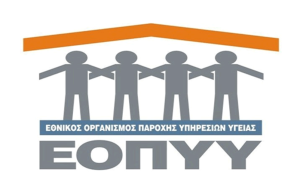
Phone
2286 033374, 6972592909
2286 085440, 6972592909
info@iatrikiprolipsi.gr
prolipsi_iatriki@hotmail.com
